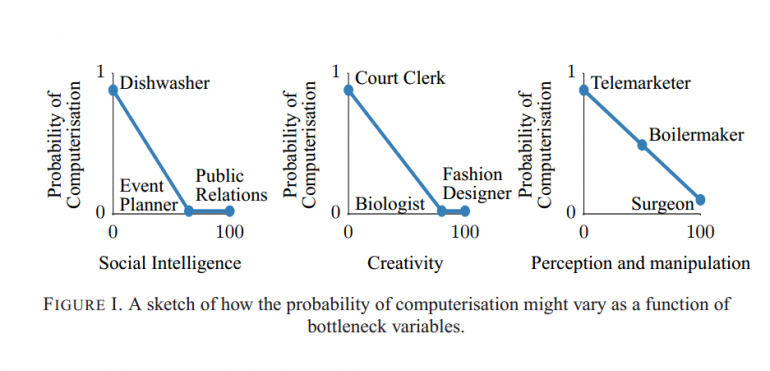Humanity's best defence against workplace automation is being human
Earlier this year, Google chairman Eric Schmidt contended that the next two decades will be “defined” by the issue of automation in the workforce.
"It's a race between computers and people -- and people need to win," he told the World Economic Forum at Davos.
If this is to be believed, then last week served as a major -- if not understated -- milestone in this debate. In case you missed it, a machine passed the Turing Test.
The reaction to this breakthrough has been fascinating (personally, I was expecting more Terminator-style "Skynet is coming, machines will soon rule the world" rhetoric). But alas, the outcome of the test was greeted with scepticism. We are still a fair way off artificial intelligence. Our jobs are safe for now.
(And just on that point, it is highly unlikely any manager in their right mind would replace an able employee with a supercomputer emulating a 13-year old called Eugene Goostman.)
The outcome, however, reinforces Schmidt’s point about automation. Machines are increasing in sophistication and these improvements appear to be exponential. The “race”, it seems, is well and truly on.
So how do we stay ahead? A 2013 study (PDF) from Oxford University provides some insights. It identifies three key skill sets that would be difficult for a machine to emulate within the next decade. They include:
1. Complex perception and manipulation skills
The report says machines can currently undertake these activates at a rudimentary level, but struggle to deal with complex and dynamic identification tasks.
2. Creative intelligence
What is considered to be ‘creative’ shifts overtime, making it difficult to calculate through an algorithm.
3. Social intelligence
This feeds into complex perception skills. Machines need to be able to identify particular characteristics and traits in order to replace humans in socially-geared roles.
As you can see by this diagram, the study ultimately found that some roles are more open to being replaced by automation than others.

Source: Oxford
All this being said, the quest toward a more automated society will not be quite so clear cut. Take the news industry for instance: general news reporting ranks as an industry unlikely to be replaced by machines any time soon. Yet, newsrooms around the world are still dabbling with the idea of automated reporting, using computer algorithms to pluck numbers from press releases and using them in a template to generate stories.
Automation -- or as it as known in some companies, ‘innovation’ -- won’t upend a workplace overnight. Much like automated reporting, it all starts with experimentation, moves into implementation, and then finally -- after all the kinks have been ironed out -- replaces staff. In other words, we often have time to adapt.
Despite the implications of this trend, it isn’t necessarily a bad thing. It’s argued by The Economist that increased automation actually benefits the economy through increased productivity and ultimately creates more jobs over time. Granted this is cold comfort to those being replaced by machines.
But perhaps we should view automation as a positive. Is any job that could be automated truly enjoyable or personally rewarding? As the Oxford study shows, increased automation ultimately forces humanity to play to its natural strengths in the workplace.
Until the day Eugene Goostman can plan events, design clothes, and perform heart surgery in its free time, it’s the one advantage we can count on in the ongoing race against the machines.
Got a question? Let us know in the comments below or contact the reporter @HarrisonPolites on Twitter. Fair warning, his response will be comparable to that of a supercomputer pretending to be a 13-year-old.
















